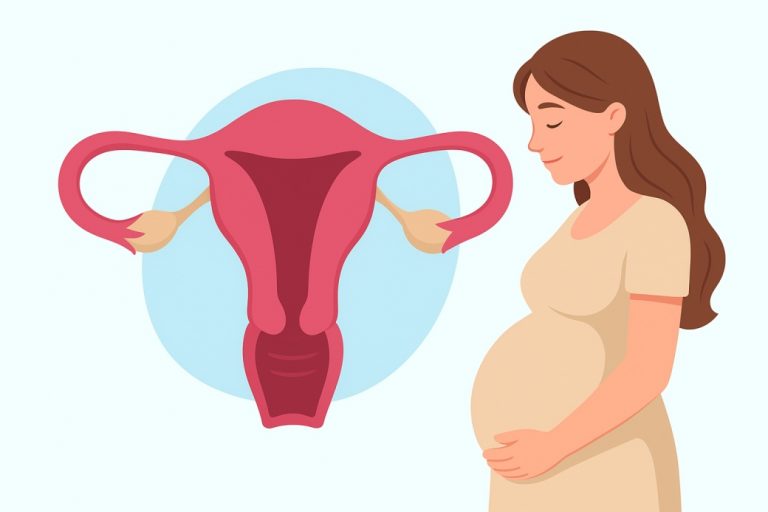Voice Changes During Pregnancy – Know the Causes

You may be glowing with happiness as you prepare to welcome your little bundle of joy into this world. Everyone around you may have provided you with a wealth of information about the physical and emotional changes your body will undergo in the coming months. You might have heard about morning sickness, mood swings, or backaches, but did anyone mention that you may experience a change in your voice as well? Voice change during pregnancy is something that many women are unaware of, yet it’s a fairly common occurrence. It may sound unusual, but your voice can actually sound different due to the hormonal shifts in your body. Here’s all the information you need to know about the difference in the voice during pregnancy!
What Causes Voice Changes in Pregnancy?
From the time you become pregnant and until the birth of your baby, you may experience many changes. Where most of the metabolic, physiological and anatomical changes may subside after you deliver your baby, the same may not hold true for your pregnancy voice change. Here are some causes that may change the pitch, quality and perturbation rate of your voice during pregnancy:
1. Swelling of Your Vocal Chords
You may experience swelling on your arms, legs and face, and sometimes vocal folds tissues may swell up too. The swelling may put pressure on the vocal cords and change the voice quality.
2. Pregnancy Hormones
You may undergo various changes during pregnancy due to the changing hormonal levels in your body. The surge in estrogen and progesterone hormones in the body may affect a pregnant woman’s body, and this hormonal imbalance affects the voice quality too (1).
3. More Bodily Fluids
During pregnancy, your body fluids increase by approximately 50 per cent. The increased fluids in the body may alter or deepen your voice because the excess amount of fluid (mucus) may sometimes get collected near the vocal cords, which may reduce the vibration rate (2). The slower vibrations may deepen your voice.
4. Change in the Lung Capacity
As your little munchkin grows inside your womb, he may push your internal organs upwards, including your diaphragm. This may make you experience breathing issues, vocal fatigue, decreased lung capacity and a changed voice. This may decrease the ability of your voice to sustain high notes.

5. Changed Voice Range
The blood vessels of your entire body dilate during pregnancy to carry the increased supply of the blood to various parts of the body. This may occur in your vocal cord vessels, too, which may make your vocal cord muscles fragile and thus more prone to rupturing and tearing. This may cause the voice to change during pregnancy.
6. LPR or Laryngopharyngeal Reflux
Progesterone may affect the functioning oesophagal sphincter, which is responsible for keeping your stomach’s acid and other content from travelling back into your larynx. This may make the stomach acid to move up to the oesophagus and may result in LPR or Laryngopharyngeal reflux, according to the Cleveland Clinic (3). LPR may alter your voice during pregnancy because it may irritate the voice box.
7. Changes in Nasal Resonance
We have discussed in the above section that pregnancy may lead to swelling in various parts of the body, and it may occur on your nose too. The swelling on and around your nasal region may cause hindrance in breathing. Decreased nasal resonance may cause a hoarse voice while pregnant.
8. Changed Posture
Your entire support mechanism undergoes a tremendous change during pregnancy, which may make changes in your voice, too. As you enter into your final trimester, you may experience noticeable changes in your back, chest and pelvis. These may lead to changed posture and changed voice too.
It is entirely normal to experience any changes in voice during pregnancy. In most cases, your voice may get back to normal after the birth of your baby or in some cases a few months after delivery. However, you should consult a doctor in some cases.
When to See a Laryngologist
Your pregnancy hormones may be the culprit in most cases of changed voice issues during pregnancy; however, if you experience any of the following changes, you should see a laryngologist as soon as possible:
- If you experience any loss of voice during pregnancy
- If you experience any sort of discomfort or pain while talking or singing
- If you feel there is a sudden change in your voice quality after you talk or sing or when you sneeze or cough
FAQs
1. Why do some pregnant women find it difficult to project their voices in loud environments?
Pregnancy can reduce lung capacity as the growing uterus presses against the diaphragm, making it harder to control breath support. This may result in difficulty projecting the voice, especially in loud environments.
2. Can swollen ankles and feet be linked to voice changes during pregnancy?
Surprisingly, yes! Generalized swelling (oedema) during pregnancy can affect not just the ankles and feet but also the vocal cords, causing them to retain fluid and leading to a thicker, deeper voice.
3. Can weight gain during pregnancy impact voice control?
Yes, weight gain during pregnancy can alter posture and the mechanics of breathing, which can affect voice control. Changes in how you support your breath may make it harder to sustain long vocal phrases or hit high notes.
This was all about voice changes and pregnancy. If you are experiencing any changes in your voice during pregnancy, it is essential for you to understand that it is a very normal phenomenon. Also, you should not make efforts to strain your voice, thinking that it may make it better. Sometimes straining the larynx may damage your vocal cords. You should relax, drink ample amounts of water and do some breathing exercises to reduce any swelling. Very soon, you may be singing sweet lullabies to your precious little one.
References/Resources:
1. Sherlie. V, Varghese. A; ENT Changes of Pregnancy and Its Management (Indian Journal of Otolaryngology and Head & Neck Surgery); National Library of Medicine; https://www.ncbi.nlm.nih.gov/pmc/articles/PMC3918343/; January 2012
2. Sanal. S, Bicer. Y, Kükner. A, Tezcan. E; Effect of Pregnancy on Vocal Cord Histology: An Animal Experiment (Balkan Medical Journal); National Library of Medicine; https://www.ncbi.nlm.nih.gov/pmc/articles/PMC5001824/; July 2016
3. Laryngopharyngeal Reflux (LPR); Cleveland Clinic; https://my.clevelandclinic.org/health/diseases/15024-laryngopharyngeal-reflux-lpr
4. Sanghavi. M, Rutherford. J; Cardiovascular Physiology of Pregnancy (Circulation); American Heart Association; https://www.ahajournals.org/doi/full/10.1161/circulationaha.114.009029; September 2014
5. Cassiraga. V, Castellano. A, Abasolo. J, Abin. E, Izbizky. G; Pregnancy and voice: changes during the third trimester (Journal of Voice); National Library of Medicine; https://pubmed.ncbi.nlm.nih.gov/22578433/; September 2012
6. Zamponi. V, Mazzilli. R, Mazzilli. F, Fantini. M; Effect of sex hormones on human voice physiology: from childhood to senescence (Hormones); Europe PMC; https://europepmc.org/article/pmc/pmc8594207; May 2021
7. Pisanski. K, Bhardwaj. K, Reby. D; Women’s voice pitch lowers after pregnancy (Evolution and Human Behavior); Science Direct; https://www.sciencedirect.com/science/article/abs/pii/S1090513817302696; July 2018
Also Read:
Body Changes in Pregnancy
Vaginal Changes when Pregnant
Metabolic Changes while Pregnancy
Common Changes in Face during Pregnancy
Emotional and Psychological Changes in Pregnancy
Was This Article Helpful?
Parenting is a huge responsibility, for you as a caregiver, but also for us as a parenting content platform. We understand that and take our responsibility of creating credible content seriously. FirstCry Parenting articles are written and published only after extensive research using factually sound references to deliver quality content that is accurate, validated by experts, and completely reliable. To understand how we go about creating content that is credible, read our editorial policy here.




































